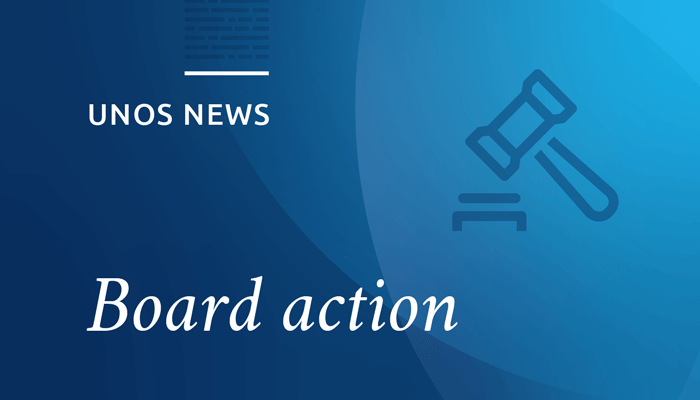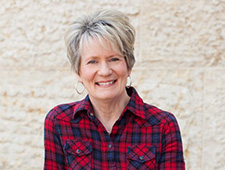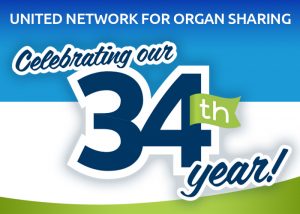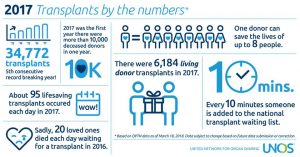Richmond, Va. – The OPTN/UNOS Board of Directors, at its meeting June 11-12, adopted a set of principles to guide future organ transplant policy relating to geographic aspects of organ distribution. The Board approved the principles by a vote of 32 in favor and five opposed.
“Geography presents inherent challenges in developing equitable transplant policy for candidates across the nation,” said Yolanda Becker, M.D., president of the OPTN/UNOS Board of Directors. “There are differences in the distribution of transplant centers and in the size and configuration of organ procurement organizations. In addition, there is geographic variability in the concentration of disease patterns that cause organ failure and causes of death that make organ donation possible. Adopting these principles is a necessary first step to address issues of geography in a systematic way.”
The statement of principles reads as follows:
Deceased donor organs are a national resource to be distributed as broadly as feasible. Any geographic constraints pertaining to the principles of organ distribution must be rationally determined and consistently applied.
Geographic distribution may be constrained in order to:
- Reduce inherent differences in the ratio of donor supply and demand across the country
- Reduce travel time expected to have a clinically significant effect on ischemic time and organ quality
- Increase organ utilization and prevent organ wastage
- Increase efficiencies of donation and transplant system resources
These principles were recommended by the Ad Hoc Geography Committee, which the Board formed in December 2017 to study the issue and make recommendations. The committee will seek public feedback beginning in August on three potential frameworks it has recommended (fixed distance from donor hospital, mathematical optimized distribution areas and borderless distribution), consistent with the principles, that may be used as a basis for future organ distribution policy. Also, at the committee’s recommendation, the Board called for an analysis of current organ distribution policies in reference to the approved principles. The OPTN/UNOS Executive and Policy Oversight Committees may use this analysis to prioritize the future work of relevant committees.
“Among various issues relating to the impacts of organ allocation policies, the Board had a robust discussion of potential effects on vulnerable populations as addressed in federal law and regulation,” added Dr. Becker. “These do not conflict with the geographic distribution principles as approved, and the OPTN will also assess these issues on an ongoing basis.”
The Board also voted to retain the lung distribution policy adopted on an emergent basis in November 2017 by the OPTN/UNOS Executive Committee, while adding a policy option to provide exception priority for highly sensitized lung candidates. The policy removed the local Donation Service Area as the first level of lung distribution, instead establishing the first level as transplant centers located within 250 nautical miles of the donor hospital. This policy will continue to be examined in light of the newly adopted principles of geography.
In other key actions:
- The Board adopted revisions to OPTN bylaws that outline the process for review of member organizations for compliance with OPTN requirements and for addressing potential issues of quality or patient safety. The revisions clarify the review process and resolve some potentially conflicting details in the prior bylaws.
- The Board also approved revisions to OPTN requirements for informed consent regarding diseases that may be transmitted from donor to the potential recipient; the updates reduce ambiguity in the medical conditions and test results to be addressed and the processes involved in communication.
The Organ Procurement and Transplantation Network (OPTN) brings together medical professionals, transplant recipients and donor families to develop national organ transplantation policy. United Network for Organ Sharing serves as the OPTN under contract with the Department of Health and Human Services, Health Resources and Services Administration.











